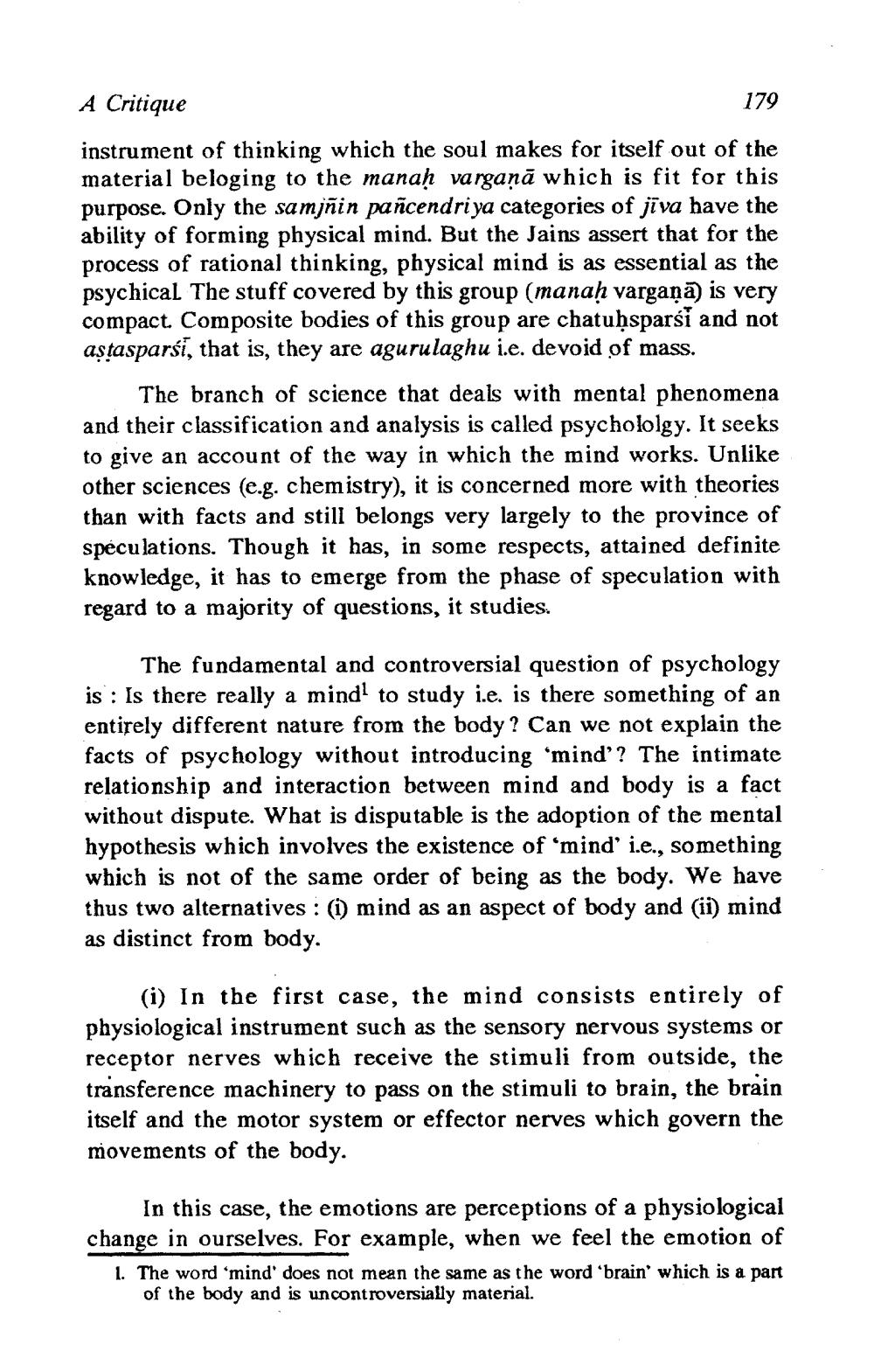________________
A Critique
179
instrument of thinking which the soul makes for itself out of the material beloging to the manaḥ vargaņā which is fit for this purpose. Only the samjñin pañcendriya categories of jīva have the ability of forming physical mind. But the Jains assert that for the process of rational thinking, physical mind is as essential as the psychical The stuff covered by this group (manaḥ vargaña) is very compact. Composite bodies of this group are chatuḥsparsi and not astasparši, that is, they are agurulaghu i.e. devoid of mass.
The branch of science that deals with mental phenomena and their classification and analysis is called psychololgy. It seeks to give an account of the way in which the mind works. Unlike other sciences (e.g. chemistry), it is concerned more with theories than with facts and still belongs very largely to the province of spéculations. Though it has, in some respects, attained definite knowledge, it has to emerge from the phase of speculation with regard to a majority of questions, it studies.
The fundamental and controversial question of psychology is : Is there really a mind to study i.e. is there something of an entirely different nature from the body? Can we not explain the facts of psychology without introducing 'mind'? The intimate relationship and interaction between mind and body is a fact without dispute. What is disputable is the adoption of the mental hypothesis which involves the existence of mind' i.e., something which is not of the same order of being as the body. We have thus two alternatives : (1) mind as an aspect of body and (ii) mind as distinct from body.
(i) In the first case, the mind consists entirely of physiological instrument such as the sensory nervous systems or receptor nerves which receive the stimuli from outside, the transference machinery to pass on the stimuli to brain, the brain itself and the motor system or effector nerves which govern the movements of the body.
In this case, the emotions are perceptions of a physiological change in ourselves. For example, when we feel the emotion of 1. The word 'mind does not mean the same as the word 'brain' which is a part
of the body and is uncontroversially material.




